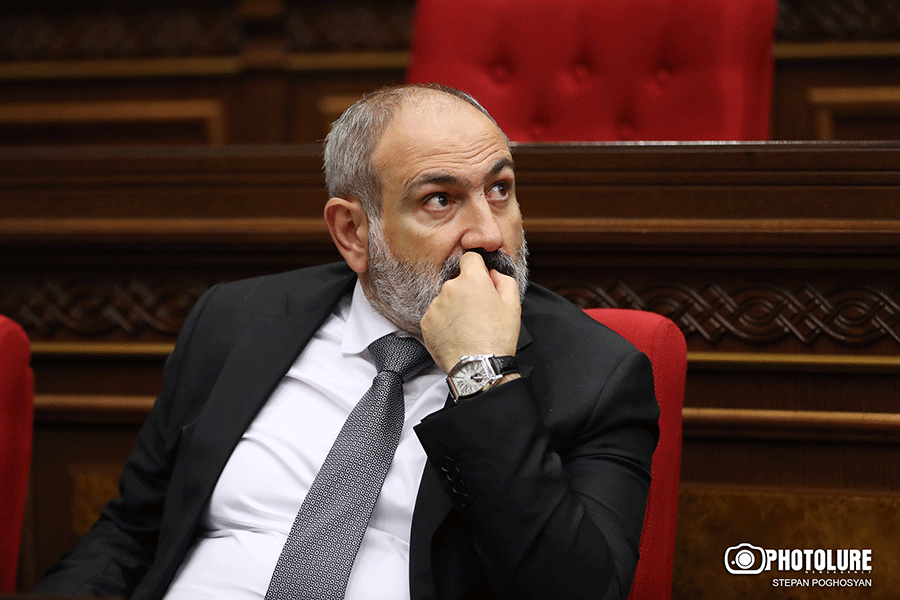Nikol Pashinyan’s government has placed the country in existential danger. At a time when both numerous citizens of Armenia and reputable international experts are already questioning the future of Armenian statehood, the government is attempting to present itself to the world with an important mission, disguising itself as a champion of democracy. One of Pashinyan’s favorite sayings is, “Today, our task is to prove that democracy is capable of ensuring both the external and internal security of the country.”
Viewing democracy as Armenia’s international brand, the head of the executive branch of the Republic of Armenia is convinced that it can also serve as a security guarantee. Therefore, he appeals to the so-called “democratic international community” to protect Armenia and provide international guarantees for its existence, citing Armenia’s status as a “democratic country.” Let’s not dwell on the question of how democratic our country truly is. Similarly, let’s set aside the debate over whether what the government is purportedly striving to build is indeed a democracy.
Security is not something to be begged for but rather something to be created, especially in the modern world where the international order is no longer functioning effectively, international institutions are discredited, international principles are undermined, and the dominance of hard power prevails in politics. In Artsakh, Armenians were ethnically cleansed in plain sight, genocide is occurring in Gaza, Ukraine is losing its sovereignty, and the possibility of a nuclear war is being seriously discussed.
In such circumstances, considering democracy as a guarantee of security is an anachronism in itself, especially within a democracy that barely exists. Misunderstanding democracy as all-permissive is a grave error. Let’s recall the slogans shouted by members of the Civil Contract Party as they besieged the courts and the parliament building, assaulted judges and lawyers, deployed the army at demonstrations, or dragged the mothers of deceased servicemen at Yerablur, all purportedly in the name of the people.
Read also
Since the 19th century, the cornerstone of democracy has been the formation of power through elections. However, are there any guarantees that anti-state and anti-national elements will not ascend to power through democracy to dismantle the state, sell Armenian lands, denigrate our historical past, culture, and other spiritual values, as has happened in Armenia over the past six years or as occurred earlier in Germany when the national-socialists, among others professing anti-human ideas, rose to power through democratic elections?
Therefore, the syndrome of ” The Crazed Masses” (Ambokhnere Khelagarvats) by Charents should not be ignored in order to avoid such a trap, in which we found ourselves nationally during the “velvet” spring of 2018. There are toolkits in the world to avoid or prevent such situations which can be emulated. For example, in the United States, the election of the president and the vice president is an indirect process in which citizens cast ballots not directly for those offices, but for members of the Electoral College, who then cast electoral votes. These electors are not obligated to elect the president based on the wishes of their voters; it is rather a moral obligation.
The significance of this is that, in extreme cases, if the people in the USA elect an anti-state element like Pashinyan, there will be an opportunity to filter it through an additional “strainer” so that the election of the “wrong” person does not become a fatal step. In Britain, this role is performed by the monarch, who, at their discretion, can dissolve the parliament and appoint a prime minister. In Iran, it’s the Leader (Rahbar) and the Council of Guardians for the protection of the revolution. During Ataturk’s time, the army fulfilled this function in Turkey, and in the USSR, it was the Communist Party, according to Article 6 of the Constitution.
There are no such instruments for the protection of state order in Armenia. The authors of the main law failed to grasp the importance of this crucial mechanism, which is indicative of a lack of state thinking. This gap must be addressed, but only after a change of regime.
The Armenian Center for National and International Studies




















































